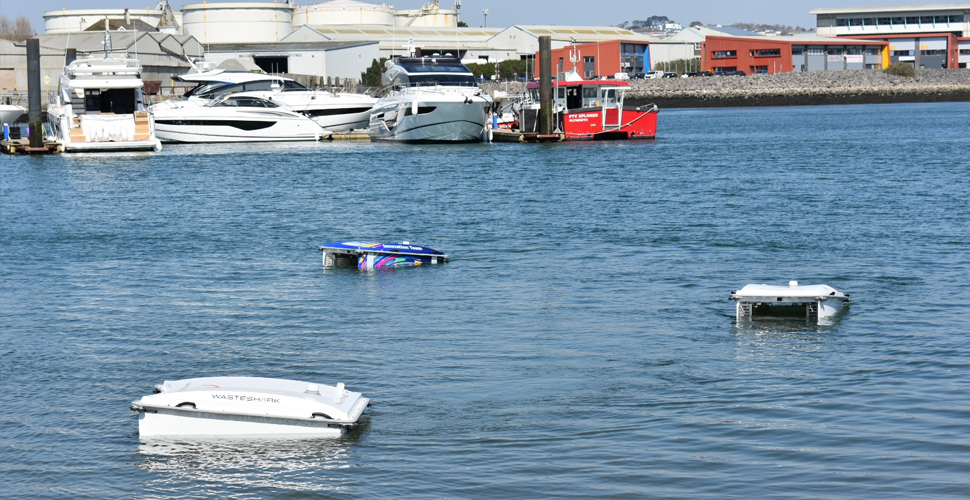Residents of Turnchapel, beware… there are a couple of sharks in the water!
Only these sharks aren’t of the great white variety and they’re certainly not dangerous to humans. No, this shark eats only one type of prey; litter.
The Waste Sharks are state-of-the-art Remote Operated Vehicles (ROVs) that survey the surface of our seas, gobbling up litter, helping to keep our natural environment clean.
They have been introduced as part of our Preventing Plastic Pollution project and are being trialled first in Turnchapel, before operating in the wider Cattewater where litter is known to gather.
Working in collaboration with Plymouth-based robotics and artificial intelligence expertise MSUBS and Marine AI, the project will look at adapting and enhancing the technology of the basic Waste Sharks to work autonomously moving around the water to where the plastic waste is collecting.
The University of Plymouth will bring their marine plastic pollution expertise to this project and will be helping to collect and analyse the waste consumed by Waste Sharks.
The Cattewater Harbour Commissioners have kindly agreed to trial the project in their waters and are keen to work with us on the education and awareness programme involving local schools and communities.
Ideas for engagement include naming and painting competitions to helping with programming and trialling the sharks in the water using the new automation ROV technology.
Babcock has also purchased a Wasteshark which will be helping to collect plastic waste from waters around the dockyard, helping cut plastic pollution within the city. Babcock is an active member of the Britain’s Ocean City, Plastic Task Force.
All partners involved in the various Waste Shark projects are actively working together to share knowledge, experience and expertise to help cut plastic pollution and positively contribute to the Climate Emergency Action Plan for Plymouth.
